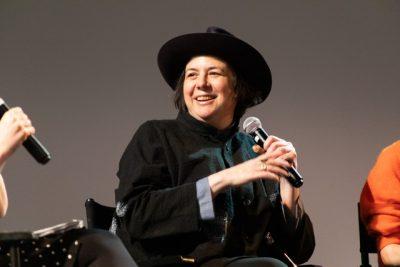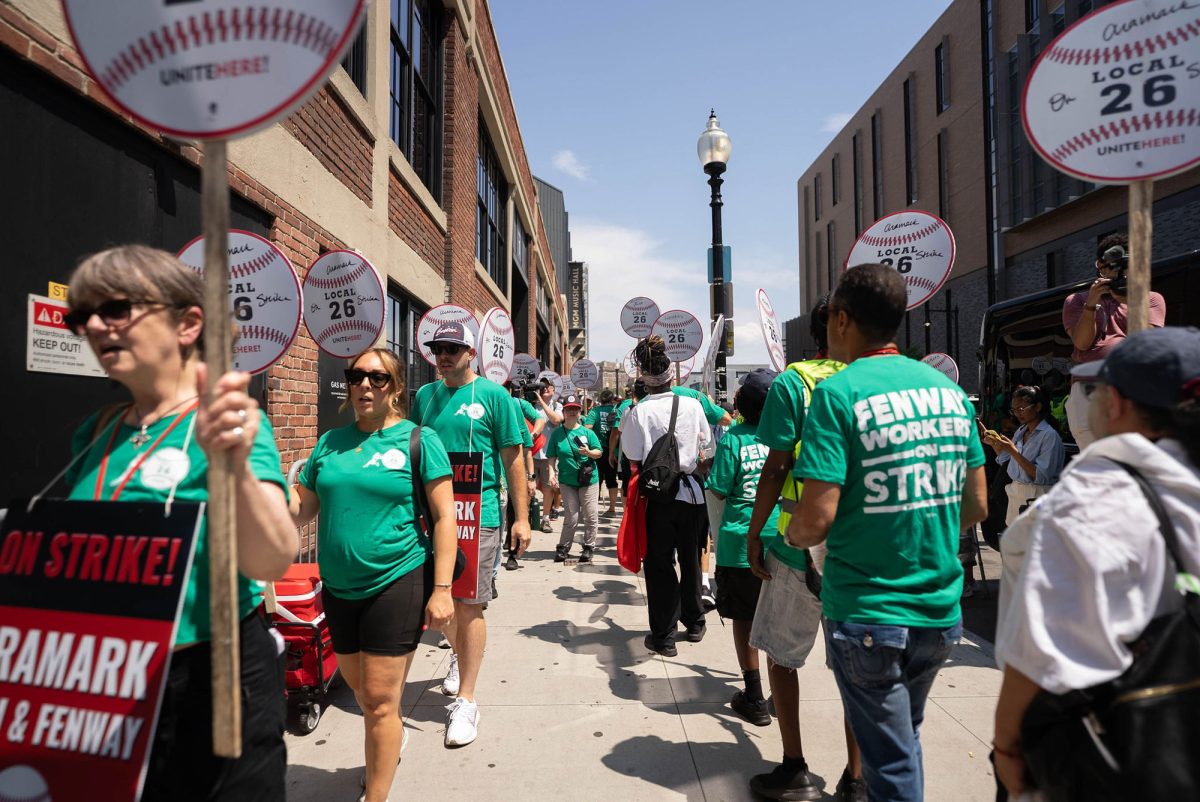The latest film adaptation of Jane Austen’s acclaimed novel “Emma” is set to enjoy a limited release in Boston later this week. The movie is not only the second silver-screen adaptation of the classic, but photographer Autumn de Wilde’s directorial debut.

The film revolves around the life of Emma Woodhouse, played by Anya Taylor-Joy, a “handsome, clever and rich” 21-year-old who resides within the luxurious walls of Hartford, her elderly father’s estate.
“Emma.” is whimsical, entertaining and exquisitely colorful, characterized by a word that is frequently used throughout its two-hour plus runtime — and an integral part of the leading actress’ surname — “joy.” It is a comedy of errors, romance, companionship and growth, as well as a lesson in meddling and vanity for Emma herself.
“Emma.” was enjoyed by a select audience for an early screening at the Coolidge Corner Theatre Tuesday night and was followed by a question and answer with de Wilde and Taylor-Joy. On Wednesday afternoon, the duo paid a visit to the Eliot Hotel as a part of their stop of the film’s press tour.
The story follows Emma as she navigates her matchmaking tendencies, romantic strife, wealth and hubris. Her main companionships come in the form of Harriette, played by Mia Goth, a less-privileged protegee, as well as Mr. Knightley, played by Johnny Flynn, a lifelong friend for whom Emma slowly develops feelings, as well as a host of other boisterous characters.
Many of the the film’s most comical moments are brought by Mr. Knightley and Emma, who often express their suppressed romantic emotions by way of smirks, eye rolls, glaring matches, witty remarks and heated exchanges.
Jane Austen first published “Emma” in 1815, its plot now more than 200 years old. De Wilde said that the timeless plot of “Emma” remains relevant thematically across the centuries, and it was a major factor in her decision to pursue the adaptation.
“This story is so iconic because of that condition between two people that fight so much they don’t realize that they’re in love, and I think that translates across gender and across time periods and ages,” de Wilde said. “It’s so fun to go back to the first book that did it.”
As the film progresses, so does Emma’s character arc. Her companionship with Harriette shifts from a relationship of power to a one of genuine friendship and her pride is seen to have diminished. De Wilde was equally intent on emphasizing the value of Emma’s platonic endeavors as her romantic ones.
“The first best friend between anybody is a type of true love that might be unmatched,” de Wilde said. “I love all the different types of love and jealousy there are in this story. We all talked about that a lot and how confusing an attachment to someone in general can be.”
Taylor-Joy was cast in the titular role in 2018, as part of de Wilde’s original movie pitch and before any other role had been filled. As such, Taylor-Joy said she and de Wilde worked in tandem in bringing the vision of “Emma.” with a “symbiotic” director-actor relationship.
“I think very early on … I started pulling these expressions … [de Wilde] would go, ‘What you just did there, what you just did as yourself that you thought no one else could see but I could see, make sure you do that in the scene,’” Taylor-Joy said. “Even the first time that that happened, I was like, ‘Oh okay, she wants me to play, she wants me to be big and to express myself.’”
Evidenced by its florid costuming, set design and location, the film takes most of its inspiration from the Georgian period, which de Wilde said gave her the “opportunity to go to use [her] nerdy, research abilities.” Its score also takes inspiration from an almost alternate universe.
De Wilde spoke to the Coolidge audience on Tuesday and again on Wednesday at the Eliot Hotel about how the comedy’s score, composed by Isobel Waller-Bridge, took the template of a spaghetti western in that it’s goal was to tell the viewer about the character and their traits.
“I wanted it to seem like the orchestra is misbehaving, and like the conductor is overwhelmed and maybe Emma and the conductor are arguing,” de Wilde said. “I think because [Taylor-Joy] does have that ability to be so subtle, there was no danger in the exaggerating.”
Despite Austen famously having said she was “going to take a heroine whom no one but myself will much like,” Taylor-Joy said she thinks the character of Woodhouse is “what it means to be human.”
“Whenever people are like, ‘Oh Emma’s worst fault is that she likes meddling in people’s business,’ I’m like ‘No, Emma’s worst fault is hubris,’” Taylor-Joy said. “She is incredibly proud and it takes a good person to admit that pride and to come out of that, and be able to say I was wrong and I will endeavor to be better.”
CORRECTION: A previous version of this article stated there would be a wide release of “Emma.” in Boston later this week. An updated version states the novel is set to enjoy a limited release in Boston later this week.


























































































































